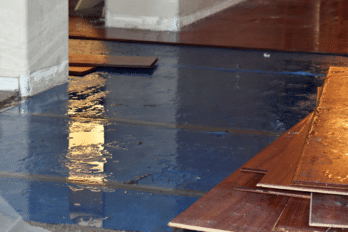
What Are the Side Costs of Buying a Home?
We all know how important it is to have a budget in place before you start looking for a new home. Chances are you’ll have spoken to a lender and got an agreement in principle for a mortgage, so you’ll have a pretty good idea of the kind of price you can afford. What can be more of a surprise, especially for first-time buyers, is all the additional costs that come with buying a home. From stamp duty and conveyancing to removals and redecorating, it can feel like you’re constantly covering unexpected expenses all the way through the house buying process. So what do you need to consider if you’re going to have an accurate and thorough house-buying budget, and how much should you set aside?
Costs before completion
Mortgage fees
As well as being sure you can afford your monthly mortgage payments; you’ll likely also have to factor in an arrangement or product fee. Be sure to check how much this is before you accept an offer, as lenders offering low rates can have higher fees. Expect to pay around £1,000 for an attractive rate, but fees of more than £2,000 are not unheard of. Your lender will probably give you the option of adding the cost to the mortgage or paying it upfront. Remember, if you choose the first option, you’ll be paying interest on it for the life of the loan.
Some lenders also charge a mortgage booking fee to secure a fixed-rate, tracker or discount deal you’ll need to pay when submitting your application. Expect to pay £100-£200.
If you used a financial adviser or mortgage broker, there might also be a fee for this.
Valuation fee
Once you’ve had an offer accepted on a property, your lender will commission a surveyor to carry out a valuation to make sure the property is worth the money you are paying for it. Costs vary but budgeting a few hundred pounds would be wise. You may also choose to carry out a separate valuation using an impartial surveyor so you can be confident you’re not paying over the odds.
Survey costs
While a valuation is carried out for the lender’s benefit, a survey is designed to ensure you have all the information you need on the state of the property so you can buy with confidence. You should always opt for an independent property survey for your protection.
The type of survey you need and how much it will cost will depend on several factors, including the age and condition of the home. For modern homes that seem to be in good condition, a RICS HomeBuyer Report may be sufficient. This more basic offering will give you an overview of the state of the property, highlighting any maintenance or repair issues that are visible. Expect to pay around £500-£1,000 for this.
For a more comprehensive report that delves deeper into the fabric of the property and provides in-depth advice on the condition and structural integrity of the home, a Building Survey is the best choice. It’ll also provide detail on potential repair and maintenance considerations, giving you actionable information you can use to renegotiate the asking price if you decide the property is still for you. Building Survey prices will start at around £900. To find out more about the benefits of a Building Survey, read our blog How does a Building Survey help buyers.
If you’re buying a new-build property, you should have a professional snagging list done before your completion date. This will cover everything from minor issues like cosmetic flaws to poorly installed doors, windows and frames, as well as checking appliances, heating systems and sockets work correctly.
Conveyancing
Of course, the legal implications of buying a property can be extensive, so you’ll need a solicitor or conveyancer to ensure all the correct procedures are followed and checks carried out. Fees can vary significantly based on location and whether you opt for a fixed fee, hourly rate or a percentage of the property value. Budget for up to around £2,000, and be aware that you may be billed at various points throughout the process as your solicitor incurs costs on your behalf.
Searches
Your solicitor or conveyancer will also arrange the searches, assess the results and report their findings to both you and your mortgage lender. This includes checks of the Local Authority planning department for future plans or preservation orders affecting the property, checking for contamination or environmental issues in the surrounding area, and water and drainage connections. The cost varies depending on the Local Authority but will typically be between £250 and £300.
Land Registry fee
Another one that’ll set you back a few hundred pounds is the Land Registry fee, which will ensure the register entry for the property is transferred to your name. Your solicitor will arrange this for you and request payment when you complete. The cost will depend on the property price. For those costing £200,001 to £500,000, the fee will be £330, rising to £655 for houses up to £1 million and £1,105 for those over £1 million.
Stamp duty
Another potentially significant cost to be aware of is stamp duty. Again, this will be paid to your solicitor, who will then pay it to HMRC once you’ve completed. In England, stamp duty kicks in for properties worth over £125,000, starting at 2% of the purchase price, rising to 12% for those worth more than £1.5 million. First-time buyers benefit from lower rates. You can work out how much you’ll have to pay using the government’s stamp duty calculator.
Post-completion costs
Removal costs
You might think that once you sign on the dotted line and complete the purchase, you’ll finally be able to control the spending, but several additional costs should be factored in. The first will be moving yourself and your belongings into your new home. If you’re feeling brave, you may choose to do this without the help of professionals, in which case it’ll just be the cost of hiring a van for the day.
If you’d rather have a less stressful moving day, a professional removals company is the way to go. Costs will vary depending on the size of the house, the distance you’re moving and whether you choose to have them pack up your belongings as well as transport them. A rough estimate would be around £250 for a one-bedroom flat, up to £750 for a four-bedroom property. Double this for professional packing.
Insurance
Of course, you want to make sure those belongings are safe once they arrive at your new home, so be sure to have your home insurance arranged in time. This should include both buildings insurance, which is usually required to be in place on exchange of contracts, and contents cover. If you’re buying a leasehold property, the freeholder will often be responsible for building insurance and pass the premiums on to you through the service charge. You’ll be able to check the details of this in your lease.
The cost of contents cover will vary depending on the value of your belongings if you want to cover out of home, have specific valuable items, require legal protection, and so on.
Decorating and furnishings
Unless you’re moving into a very similar property designed exactly to your tastes, the chances are you’ll also need to spend some money on furniture that fits in new spaces, paint and accessories to match your style and even appliances depending on what was left by the previous owner. Much of this can be done over time, but it’s good to have some money in the budget if there are any elements you can’t live with in the short term.
Mortgage payments
It’s also worth bearing in mind that your first mortgage payment may be higher than usual if you complete midway through the month. Interest will be calculated from when the lender releases the mortgage monies – usually a few days before completion – with the first scheduled payment due the following month.
Optional extras
It may be that you choose to have the property professionally cleaned before you move in, and it’s often advised that you change the locks when you buy a new home. You may also need to pay to set up or activate broadband, so keep a little in the budget for these extras.
While all these costs can seem daunting, being aware of them in advance, adapting your budget and speaking to the professionals who will guide you through the process will help you enormously.
The Novello Approach
At Novello, we pride ourselves on being a trusted partner, and we’ll always be on hand to share our years of experience as you buy your new home.
We have a range of survey options to ensure you go into the purchase armed with all the information you need and confident that you’re making the right decision and paying the right price.
In addition to the RICS HomeBuyer Report, we offer the exclusive HomeLevel Report, which is easier to understand, more comprehensive and even better value. Suitable for flats and more modern houses such as those built after 1970, which are in a reasonable condition and worth less than £1,000,000, it covers a minimum of 20 internal and external elements in the property. This includes roofs, walls, windows and ceilings. It also includes a bespoke summary report sent to your solicitor to ensure they understand any issues too.
The more comprehensive Novello+ Building Survey provides a detailed picture of your property’s construction and condition. We utilise technology such as Pole Cams to thoroughly inspect those hard to reach areas and even include flood maps, broadband speeds, asbestos, and energy efficiency advice. The survey report will provide in-depth advice on the home’s condition, highlight any defects or issues, complete with photos, explain the likely cause and advise on repair or maintenance.
We also offer snagging lists for new builds and specialist roof surveys if you feel your property requires further inspection or you’re particularly concerned about its condition.
Whichever survey you opt for, you can be sure you’ll have a knowledgeable, RICS-qualified surveyor who will offer a thorough inspection, a comprehensive report and any follow-up advice you may need.
Contact us today or get a free Quotation to find out more.

